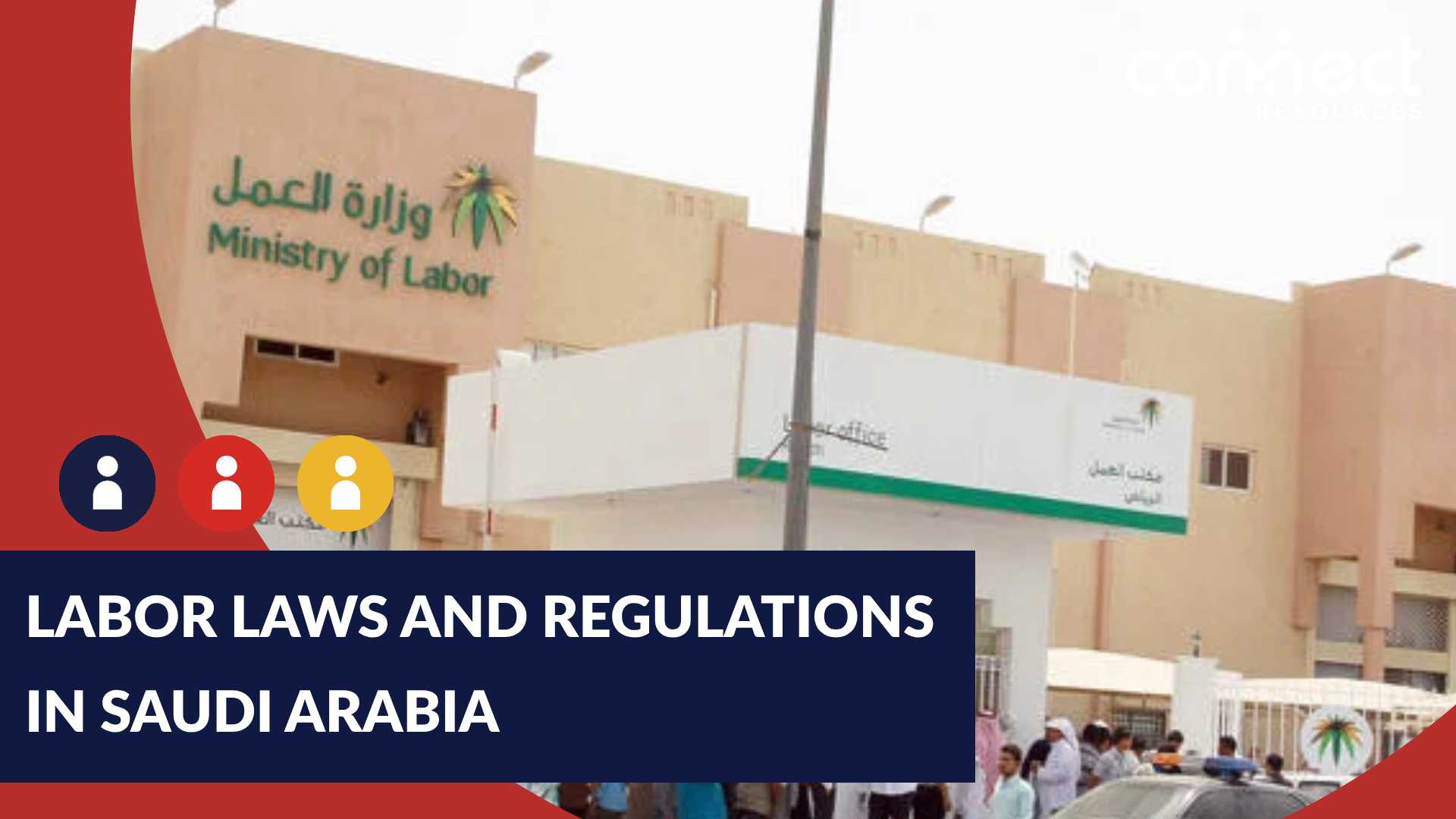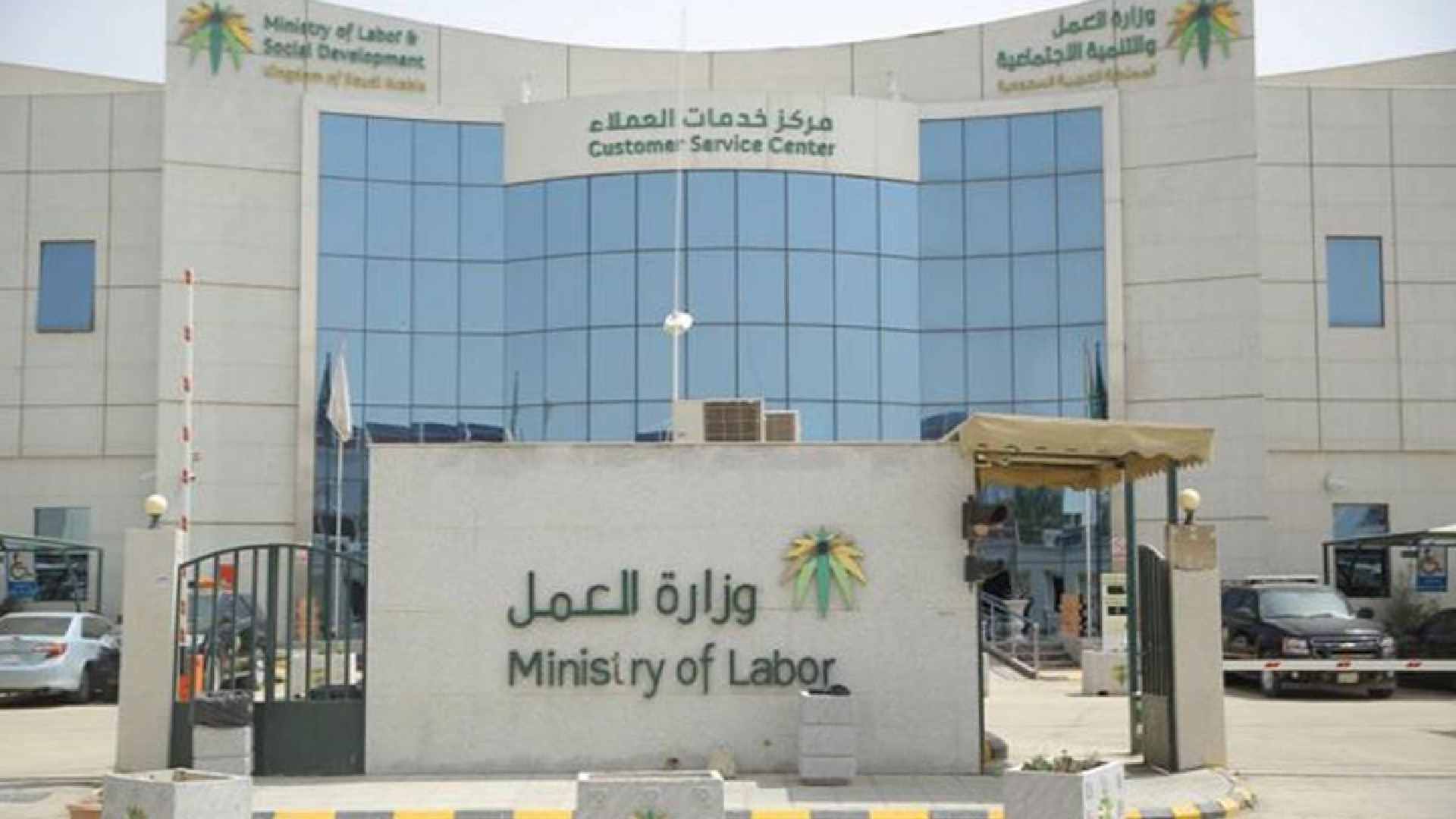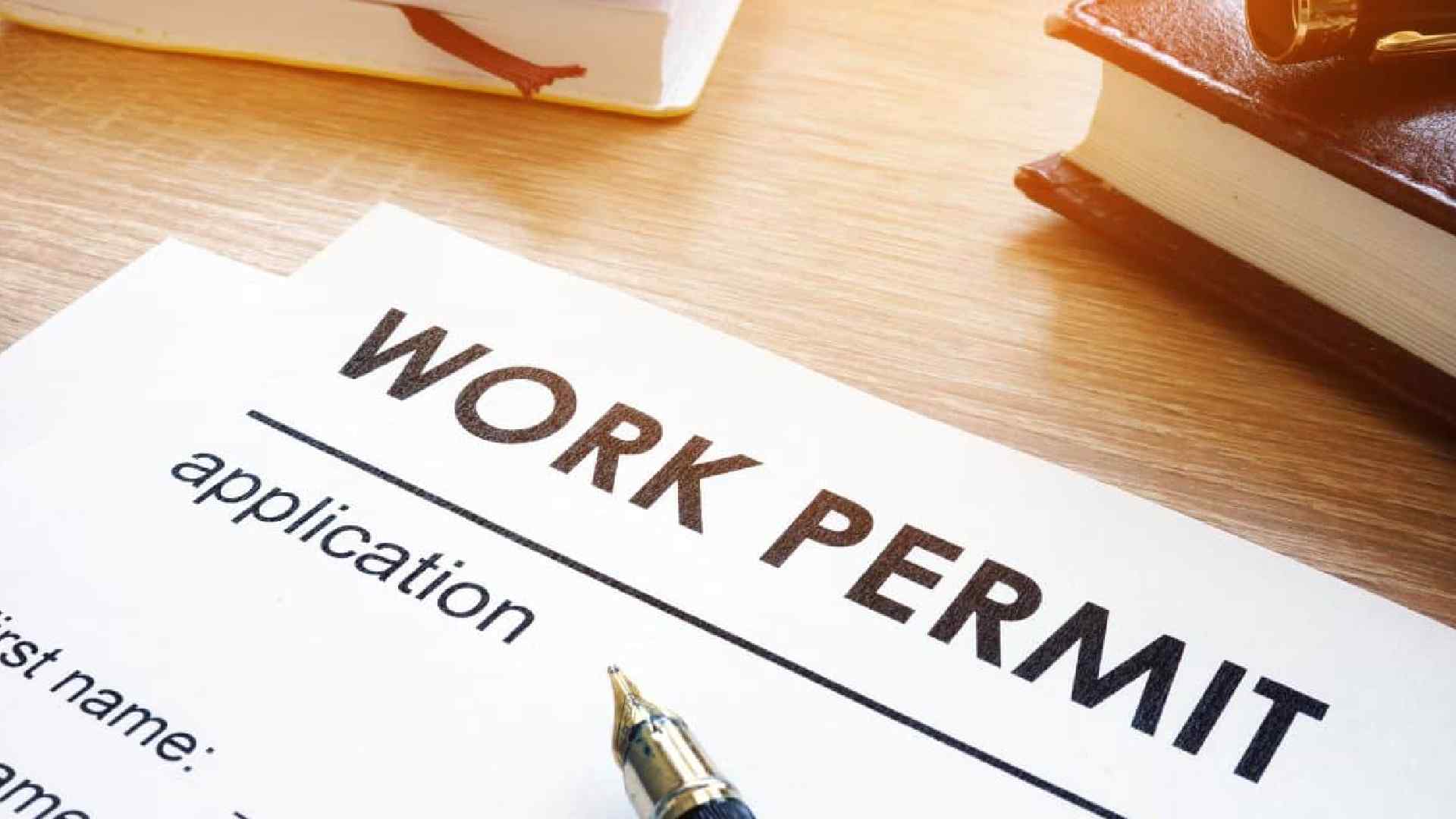The Ministry of Labor Saudi Arabia is a government entity that must regulate and supervise employment laws in Saudi Arabia. Before starting to work in this country you have to know what the labor regulations and laws are. Especially those governing employment in KSA. Understanding these laws is essential for employees and employers who wish to operate in the country. It is of utmost importance to operate within the legal framework established by the Saudi government.
In this article, we will discuss the responsibilities and rights of employers and employees in Saudi Arabia. In particular, you will see information about employment contracts, working conditions, salaries, benefits and other important aspects. Of course, all about labor laws in KSA. We will also examine what the work of the Ministry of Labor Saudi Arabia is in labor disputes.
Labor disputes resolution: The Ministry’s role and process
The resolution of labor disputes in Saudi Arabia involves the Ministry of Human Resources and Social Development. In this way, the ministry plays a role that is essential in resolving issues between employers and employees.
The process to resolve a labor dispute begins with an amicable agreement stage. In this way, they have to find a solution that is acceptable to both parties. However, if an agreement is not reached, the case can be referred to the labor courts.
This section will explore in detail the role and process that the Ministry has in resolving these labor disputes in Saudi Arabia. In addition, all the steps involved to achieve an amicable agreement, and the responsibilities and rights of the parties involved will be analyzed. They will even discuss the latest updates to Saudi policies and regulations to resolve these disputes.
Key steps in resolving Labor disputes with the Ministry
Arbitration and litigation are the most common dispute-resolution methods in Saudi Arabia. However, the parties can choose other methods such as conciliation and mediation. For this reason, the Ministry of Justice has taken the necessary measures to make these procedures electronic and remote hearings.
New complaints must be submitted online through the Najiz portal, the portal of the Ministry of Justice. This is the first step to start legal proceedings. Additionally, a similar portal is available to file any administrative claims with the Claims Board.
Once the claim is filed, the corresponding judicial department reviews and confirms that the procedural requirements are met. The court then schedules a preliminary hearing within 20 days of filing the claim. At the preliminary hearing, the court considers jurisdiction and procedural issues, encourages the parties to reach an agreement, identifies the subject of the dispute, etc.
Now the deadlines are established for the court to issue its ruling in commercial matters as follows:
- All cases that come before the court of first instance are 180 days
- For small claims that are not subject to appeal, it is 90 days.
- Cases heard before the Court of Second Instance or Court of Appeal are 90 days.
If the process goes through a judicial interruption, the judge can impose a prison sentence. Additionally, if a party violates hearing procedures or misses deadlines, they may be fined SAR 10,000.
The Ministry’s mediation role in resolving disputes
Mediation is becoming increasingly popular as a method for resolving labor disputes. In this way, it offers an alternative to traditional processes. In addition, it is a process that is voluntary and confidential, where a neutral third party, the mediator, helps in the process. This mediator facilitates communication and negotiation between the parties in conflict, helping them reach an acceptable solution.
Currently, mediation has had significant growth and acceptance in Saudi Arabia. Becoming a reliable method to resolve these disputes. This is because traditionally Saudi Arabia’s legal system was based on litigation and judicial processes to resolve these disputes.
For this reason, the kingdom gradually adopted mediation as a viable alternative. Currently, this process is very common in different sectors of Saudi Arabia. Where you can see commercial, labor, community, and family disputes. The Ministry of Justice established different specialized mediation centers.
The centers have trained and certified mediators to provide access and quality throughout the process. Furthermore, mediation is commonly used in family disputes, where the main thing is to preserve relationships with amicable solutions.
Role of documentation in dispute resolution
In dispute resolution in Saudi Arabia, documentation plays an important role. This is because this is essential to be able to support the arguments and claims that are during the resolution process. Among the documents, you can find contracts, financial records, agreements, correspondence, work visas, and other relevant documents.
Documentation provides evidence and clarity about the terms and conditions agreed upon by the parties. In addition, it is very common among courts and mediators to evaluate and resolve these disputes. Documentation can prevent disputes by establishing clear, mutually agreed-upon expectations from the beginning.
In the context of these disputes, documentation is important to support wage-related claims. In addition, you also find working hours, working conditions, and other aspects of employment. For this reason, both employers and employees must keep records of employment transactions and agreements.
Obtaining work permits in Saudi Arabia: what you need to know
To work in Saudi Arabia, you will need a residence permit, that is, Iqama. This document will allow you to work for a specific period, which can be a maximum of two years. If you move to Saudi Arabia for work, you must have a Saudi employer as your sponsor.
On the other hand, the company has to obtain visa approval from the Ministry of Human Resources and Social Development of Saudi Arabia to hire foreigners. In addition, you must meet other requirements imposed by the Ministry of Labor Saudi Arabia.
The first thing that any applicant to work in the country needs to obtain the Iqama is to apply for a work visa. For this, you can apply for a temporary work visa as another option. Subsequently, the employer has to request that this visa be in the employee’s name. By completing this step, you can enter KSA and start working.
Within the next 90 days after your arrival, your employer has to apply for a residence permit. This permit will include the work permit of the future worker. The residence permit is a standard form of identification in Saudi Arabia. That is, you will not be able to perform certain tasks without this document. For example, open a bank account.
It is important to note that you have to carry your Iqama with you at all times. If you do not present your card when requested, you may receive a fine or sanctions. Additionally, you have to know that the Iqama has a limited duration, which can be one or a maximum of two years. This will depend on the duration of your employment contract. If the expiration date is reached, the employer is the one who has to go through the renewal process.
Documentation and requirements for Labor law
Foreign employees need to know that the authorities in KSA are very strict. Especially, the Ministry of Labor Saudi Arabia. It is important what appearance or behavior to follow. The reason is that an inappropriate attitude can lead to denial of entry into the country or deportation.
All visitors entering the country have to know the principles and philosophies of Islam. That is the only religion that can be celebrated publicly in Saudi Arabia.
Before knowing the requirements and documentation to obtain a work permit, you have to know what the work visas are. The reason is that, before applying for a work permit, you need a work visa. Additionally, it is important to know that if you are working in the country and want to leave it for any reason, you have to apply for a final exit visa.
Currently, there are three types of work visas in KSA with the approval of the Ministry of Labor Saudi Arabia.
- Business visit visas.
- Family visit visas.
- Employment visas.
With this, you can now know what documents and requirements are requested by the Ministry of Labor Saudi Arabia for work permits.
- The applicant must provide a passport valid for the duration of employment.
- Additionally, to obtain a work permit in KSA you need a color passport-sized photo.
- Online proof of permit fee payment. For this, you can enter the Enjazit website.
- The completed work permit form or application.
- Three photocopies of a medical report.
- Employment letter from a sponsoring company in KSA with relevant certification.
- A photocopy of the employment contract, signed by the sponsor and applicant.
- Criminal record or police report of any event.
- A photocopy of the applicant’s university diploma. This has to be validated by the Saudi Cultural Mission.
- A prepaid envelope with the applicant’s address.
Work permit renewal and extensions for Saudi Arabia
If you want to take advantage of the Saudi labor market trends but your work permit has expired, you just have to renew it. To renew a work permit in KSA, there are some requirements and steps you must follow. Below you will see an overview of the work permit renewal or extension process.
Request renewal or extension: An employer must request renewal of the work permit if the expiration of their current permit is close to 180 days. It is also valid to request renewal before those days.
Pay Fees: Appropriate fees have to be paid for a work permit in KSA. To do this, you have to use the SADAD number and go to one of the local banks. The renewal fees imposed by the Ministry of Labor Saudi Arabia have certain variations.
However, under the Qiwa system, the cost to issue, renew, or extend a work permit is 800 Saudi riyals per month. Additionally, additional tariffs imposed by the Ministry of Labor Saudi Arabia must be paid. On the other hand, the cost to extend the work permit is the same, that is, 800 Saudi riyals.
Qiwa Platform: An employer has to use the Qiwa platform to renew and apply for a work permit. The first thing is to log in to Qiwa, and then select the company and service. That is, issuance, renewal, or extension. Subsequently, you must choose the employees who request the service. Finally, you just have to apply.
It is important to keep in mind that work permits cannot be canceled after undergoing issuance, renewal, or extension. Furthermore, the renewal of a work permit in KSA is linked to the renewal of the residence permit. That is, the Iqama and this is carried out by the Ministry of Labor Saudi Arabia.
Avoiding common renewal pitfalls
When you want to renew a work permit in Saudi Arabia, you tend to make certain common mistakes. Below, you will see a brief description of them so you can avoid committing them.
Failure to plan: It is essential to begin the renovation process well in advance. That is, the time needed before the expiration date. This way, you can avoid last-minute rushes that produce errors of all kinds and expose the applicant to many risks.
Not meeting the requirements: It is important to check what the requirements are by the Ministry of Labor Saudi Arabia. This way, you can ensure that you comply with all the documents and requirements for the renewal of your work permit.
Delay in payment of fees: You have to ensure that you pay the corresponding fees on time and in advance. Thus, you can avoid delays in the renewal process and, in turn, expose yourself to severe consequences,
Do not use official platforms: Before going through an issuance, renewal, or extension process you have to investigate which are the official platforms. It is important that you carefully review the page you are using to avoid being scammed and therefore delaying your renewal. One of the most common official platforms is Qiwa and through it, you can request, renew, and extend a work permit.
Lack of communication between employee and employer: It is important to maintain regular and clear communication with the employer. This way, you can ensure that you both have relevant information about the documents. That is, about the needs of the employee and the renewal deadlines.
It is important to remember that it is essential to follow the regulations and guidelines issued by the Ministry of Labor Saudi Arabia. This way, you can guarantee that all renewal, or extension processes are successful.









